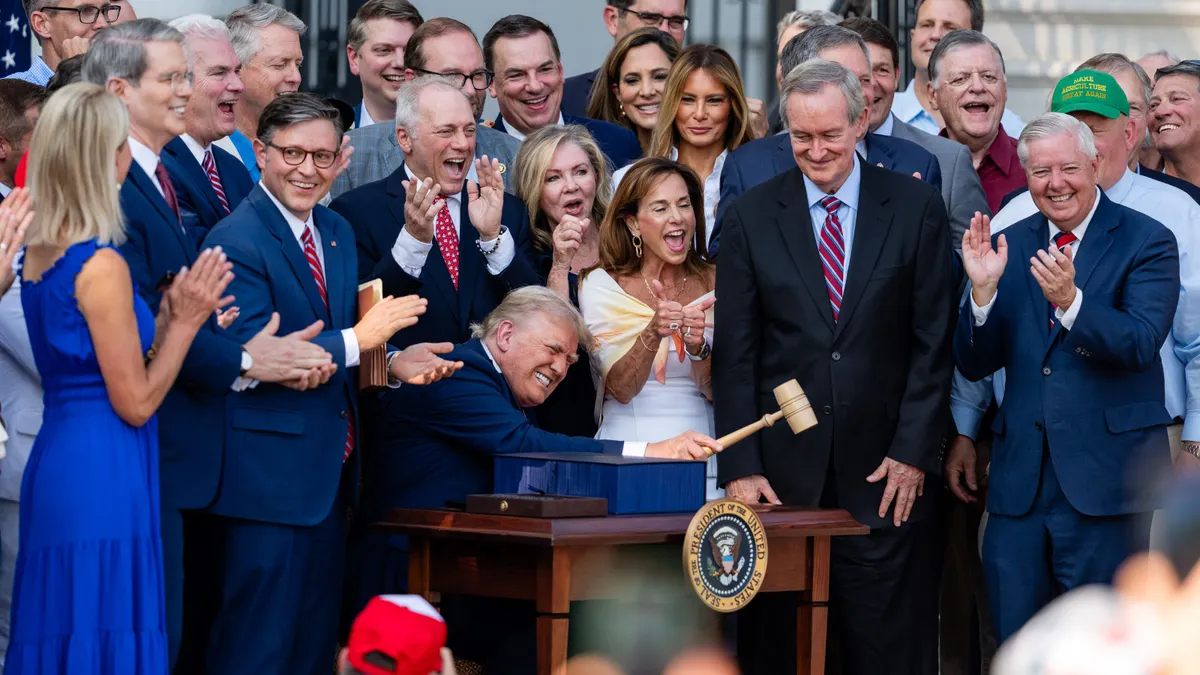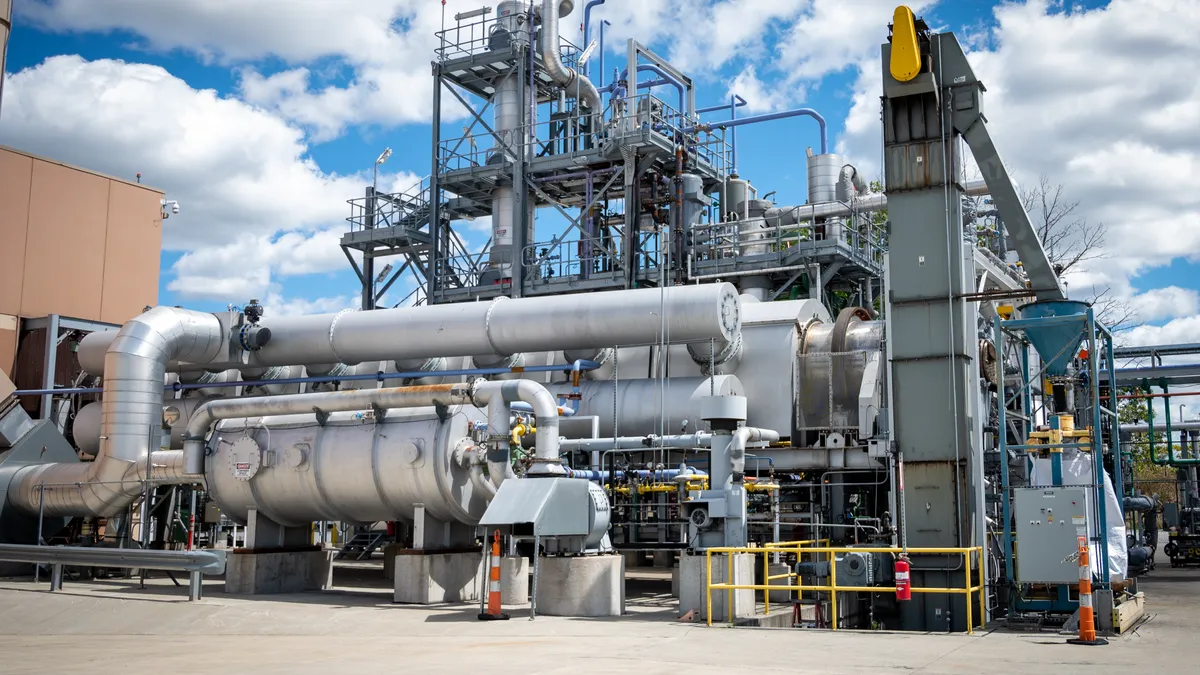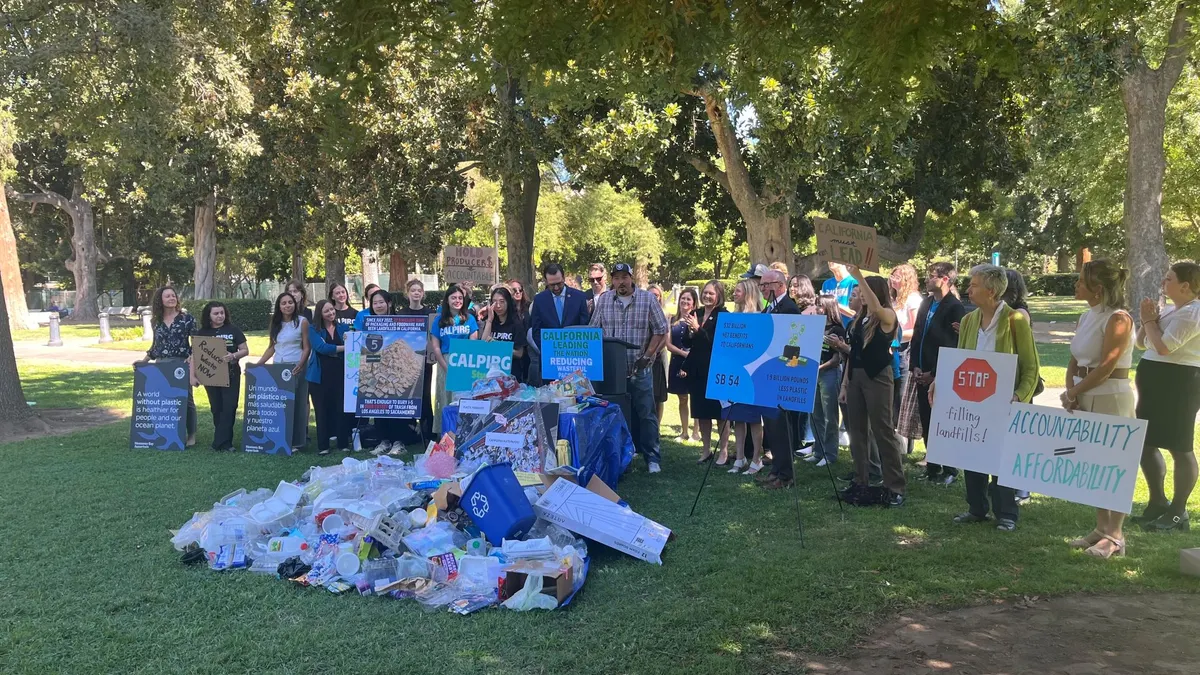The One Big Beautiful Bill Act that President Donald Trump signed into law on Friday ushered in a major shift in tax policy and public benefits that could benefit certain waste and recycling activities, industry groups say.
The bill gutted many clean energy credits but extended those for alternative fuels. It also made other tax code changes to boost manufacturing. Several industry groups applauded the bill, which was passed through the reconciliation process on a party-line vote before Republicans’ self-imposed deadline of July 4.
“The American Biogas Council commends President Trump for his work to ensure Congress’ timely action on the One Big Beautiful Bill Act,” Patrick Serfass, executive director of the American Biogas Council, said in a statement following the bill’s signing. “The Act contains several helpful provisions for the biogas sector, acknowledging the enormous potential of recycling decomposable waste – from farms, food systems, and wastewater treatment plants – to produce reliable American-made energy that both generates electricity and fuels the transportation sector.”
The final law extends the Section 45Z Clean Fuel Production Tax Credit an extra two years, through the end of 2029. The provision, created by 2022’s Inflation Reduction Act, incentivizes the production of fuels created from non-petroleum sources like landfill gas and organic waste. New language in the reconciliation bill also prevents the credit from being used for fuels produced from feedstocks sourced outside North America.
Other wins for the waste-to-fuels sector include the preservation of tax credit transferability, which allows clean fuel credit generators to sell those credits to businesses looking to lower their tax bills. The final bill also terminates the Section 45V Clean Hydrogen Production Tax Credit on Jan. 1, 2028, five years earlier than originally enacted. Previous versions of the reconciliation bill terminated the credit even earlier.
The law also makes permanent 100% bonus depreciation. The tax provision allows businesses to pay less on their taxes for certain kinds of newly acquired property, like vehicles. The provision was included in the Tax Cuts and Jobs Act of 2017 but was scheduled to phase out over the next few years. It is now permanent.
Other tax provisions benefitting manufacturers — including the expanded Section 179 regarding expensing and enhanced Section 199A deductions — are likely to aid plastics and recycling facilities, according to Matt Seaholm, president and CEO of the Plastics Industry Association.
“The signing of the One Big Beautiful Bill Act into law is a major win for the plastics industry. The package includes many pro-growth provisions we’ve advocated for—measures that promote long-term investment, encourage innovation, and provide the economic stability our industry needs to thrive,” Seaholm said in a statement.
The One Big Beautiful Bill Act has been heavily criticized for its cuts to social programs like Medicaid, which are due to go into effect in 2027. Groups like the World Resources Institute have also criticized its elimination of clean energy tax credits created by the Inflation Reduction Act. The changes will reduce the federal government’s role in boosting technologies like solar and wind.
Grant programs funded by the Inflation Reduction Act, including the Greenhouse Gas Reduction Fund and funding for heavy-duty vehicles that use cleaner fuels, were also slashed or eliminated by the new law.
Changes to the clean fuel tax credit will mean the Internal Revenue Service must issue updated guidance, according to the RNG Coalition. The IRS was slow to release guidance for the first version of the credit, leading to a rush of development late last year from renewable natural gas project developers hoping to qualify for the incentive.
RNG Coalition Senior Director of Federal Government Affairs Geoff Dietz said the industry group would work with federal partners to ensure guidance is released as soon as possible.
“Clear, pragmatic, and expedient regulation will be critical to ensure that Section 45Z reflects the Congressional intent to accelerate sustainable development, deployment, and utilization of renewable gas,” Dietz said in a statement.



















